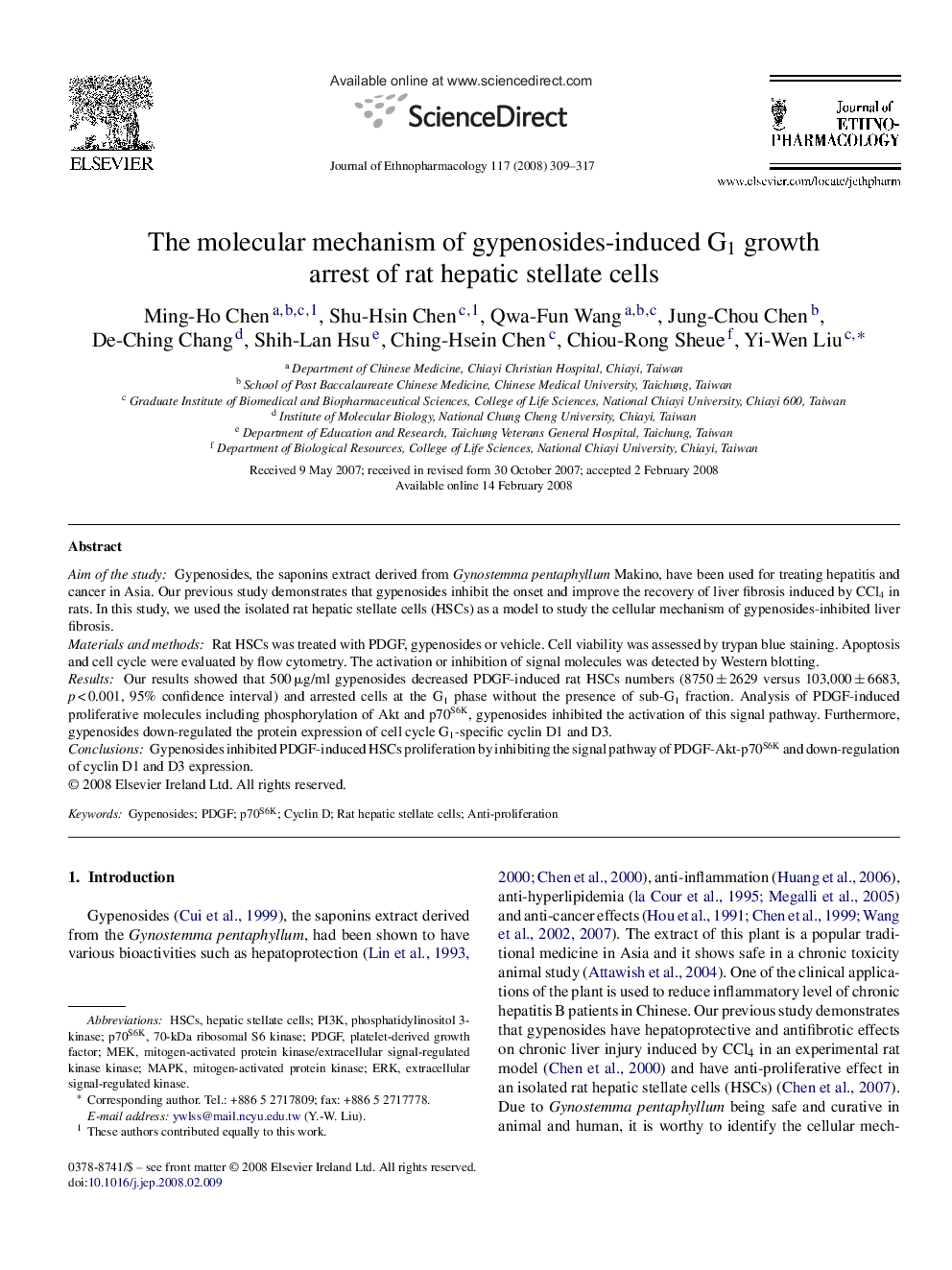| Article ID | Journal | Published Year | Pages | File Type |
|---|---|---|---|---|
| 2547865 | Journal of Ethnopharmacology | 2008 | 9 Pages |
Aim of the studyGypenosides, the saponins extract derived from Gynostemma pentaphyllum Makino, have been used for treating hepatitis and cancer in Asia. Our previous study demonstrates that gypenosides inhibit the onset and improve the recovery of liver fibrosis induced by CCl4 in rats. In this study, we used the isolated rat hepatic stellate cells (HSCs) as a model to study the cellular mechanism of gypenosides-inhibited liver fibrosis.Materials and methodsRat HSCs was treated with PDGF, gypenosides or vehicle. Cell viability was assessed by trypan blue staining. Apoptosis and cell cycle were evaluated by flow cytometry. The activation or inhibition of signal molecules was detected by Western blotting.ResultsOur results showed that 500 μg/ml gypenosides decreased PDGF-induced rat HSCs numbers (8750 ± 2629 versus 103,000 ± 6683, p < 0.001, 95% confidence interval) and arrested cells at the G1 phase without the presence of sub-G1 fraction. Analysis of PDGF-induced proliferative molecules including phosphorylation of Akt and p70S6K, gypenosides inhibited the activation of this signal pathway. Furthermore, gypenosides down-regulated the protein expression of cell cycle G1-specific cyclin D1 and D3.ConclusionsGypenosides inhibited PDGF-induced HSCs proliferation by inhibiting the signal pathway of PDGF-Akt-p70S6K and down-regulation of cyclin D1 and D3 expression.
